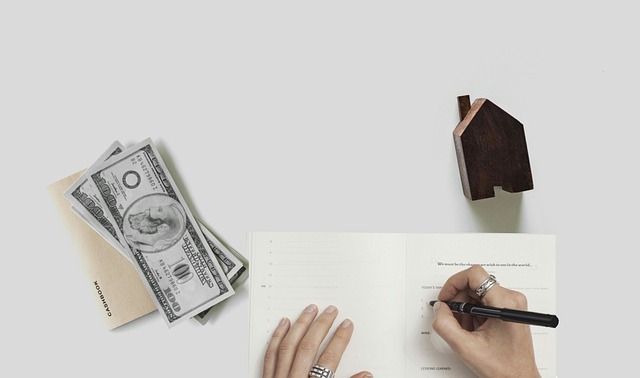Dutch Business Etiquette: Tips for Success

The Netherlands is known for its open and direct business culture, making it an attractive destination for international professionals. However, understanding Dutch business etiquette is crucial for building successful relationships and navigating the local corporate landscape. This article provides essential tips on Dutch business etiquette, covering communication styles, meeting protocols, and cultural nuances that can help you succeed in the Dutch business environment.
Communication Style
Directness and Honesty
The Dutch are known for their straightforward and honest communication style. They value transparency and appreciate when others are equally direct.
- Be Clear and Concise: Avoid excessive small talk and get to the point quickly. The Dutch prefer clear and concise communication.
- Honesty is Valued: If you disagree or have concerns, express them openly but respectfully. The Dutch appreciate constructive feedback.
Punctuality
Punctuality is highly valued in Dutch business culture. Being on time is a sign of respect and professionalism.
- Arrive on Time: Whether it’s a meeting, appointment, or social event, make sure to arrive on time. Being late can be seen as disrespectful.
- Plan Ahead: Allow extra time for travel, especially in cities like Amsterdam where traffic can be unpredictable.
Business Meetings
Preparation
Preparation is key to making a good impression in Dutch business meetings.
- Agenda: Meetings typically follow a structured agenda. Familiarize yourself with the agenda beforehand and come prepared to discuss the topics.
- Materials: Bring any necessary documents, presentations, or reports. The Dutch appreciate thorough preparation and attention to detail.
Meeting Etiquette
- Handshakes: A firm handshake is the standard greeting in Dutch business settings. Make eye contact and greet everyone individually.
- Titles and Names: The Dutch are relatively informal and often use first names in business settings. However, it’s polite to wait until invited to use first names.
- Participation: Be an active participant in discussions. The Dutch value input from all attendees and appreciate when everyone contributes.
Decision-Making
Decision-making in Dutch companies is often consensus-driven, with input from various stakeholders.
- Collaborative Approach: Be prepared for a collaborative decision-making process. The Dutch prefer to reach a consensus rather than having decisions imposed from the top.
- Patience: Decisions may take longer as they involve discussions and input from multiple parties. Be patient and avoid pushing for quick decisions.
Dress Code
Business Attire
The Dutch business dress code is generally smart but understated.
- Formal Settings: In formal business settings, men typically wear suits and ties, while women wear business suits or dresses.
- Casual Settings: In more casual environments, business casual attire is acceptable. However, it’s always better to err on the side of being slightly overdressed than underdressed.
Adaptability
Pay attention to the dress code of the specific company or industry. Some tech startups may have a more relaxed dress code compared to traditional corporate environments.
Networking and Relationship Building
Informal Networking
Networking in the Netherlands often takes place in informal settings, such as after-work drinks or social events.
- Borrel: The Dutch concept of borrel (after-work drinks) is a common way to network and build relationships. Accepting an invitation to a borrel can be a great way to connect with colleagues and business partners.
- Socializing: While the Dutch are professional, they also value personal connections. Engage in casual conversations and show genuine interest in getting to know your counterparts.
Building Trust
Trust is an important aspect of Dutch business relationships.
- Consistency: Be consistent in your actions and follow through on commitments. The Dutch value reliability and trustworthiness.
- Transparency: Be open and transparent in your dealings. The Dutch appreciate honesty and straightforwardness.
Gift-Giving
Business Gifts
Gift-giving is not a common practice in Dutch business culture, but small tokens of appreciation can be appropriate in certain situations.
- Modest Gifts: If you choose to give a gift, keep it modest and practical. Items like branded pens, notebooks, or a bottle of wine are acceptable.
- Timing: Gifts are typically exchanged at the end of a successful project or during festive occasions like Christmas.
Personal Gifts
If invited to a Dutch colleague’s home, it’s polite to bring a small gift for the host.
- Common Gifts: Flowers, wine, or chocolates are common gifts for hosts. Make sure to present the gift upon arrival.
Cultural Nuances
Egalitarianism
Dutch society is highly egalitarian, and this is reflected in the business environment.
- Flat Hierarchies: Dutch companies often have flat hierarchies, with a focus on teamwork and collaboration. Titles and status are less emphasized.
- Respect for All: Treat everyone with respect, regardless of their position or rank. The Dutch value equality and fairness.
Work-Life Balance
The Dutch place a strong emphasis on work-life balance.
- Flexible Working Hours: Many Dutch companies offer flexible working hours and remote work options. Respect your colleagues’ time and avoid scheduling meetings outside of regular working hours unless necessary.
- Vacation Time: The Dutch take their vacation time seriously. Avoid contacting colleagues during their holidays unless it’s urgent.



